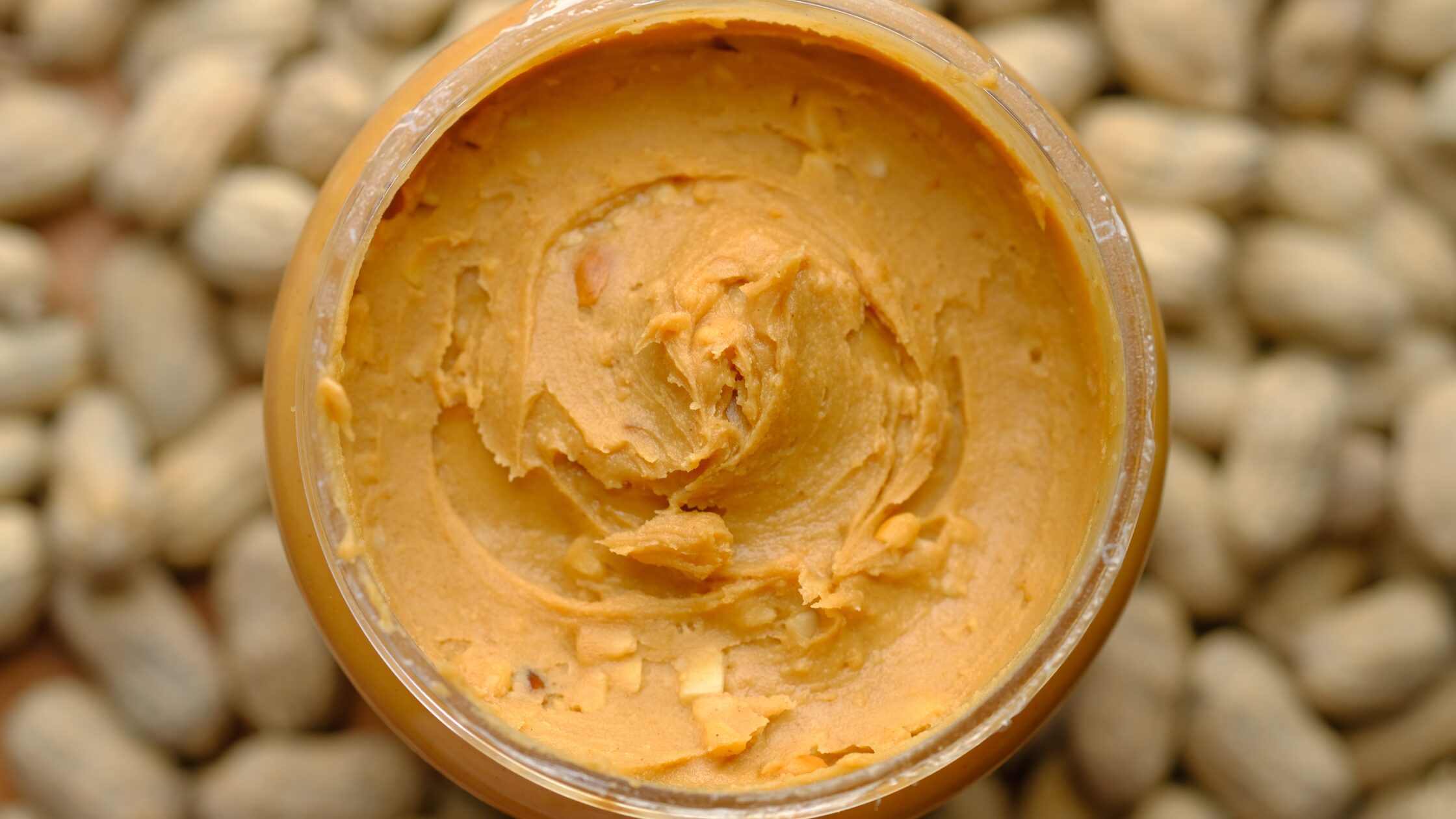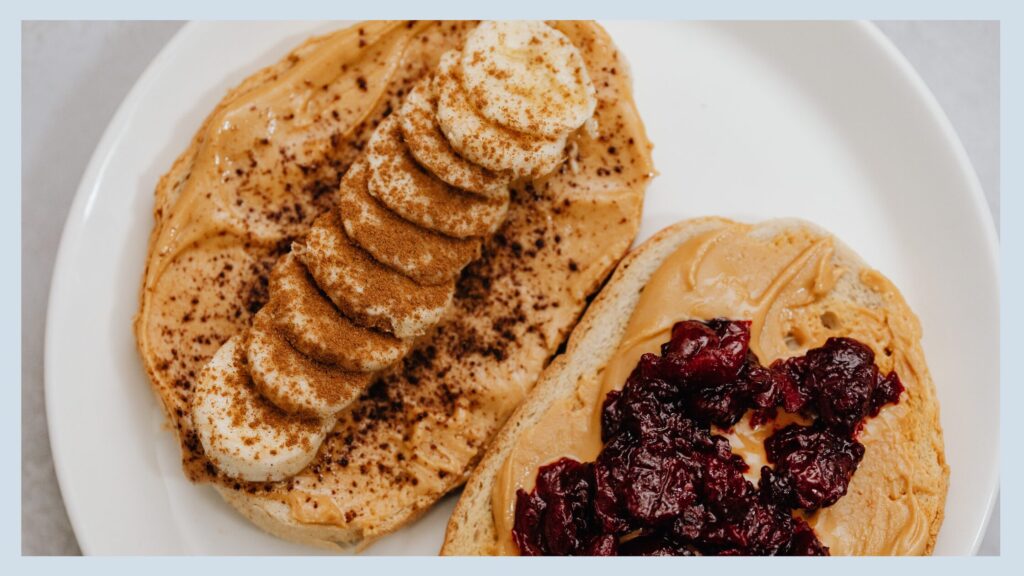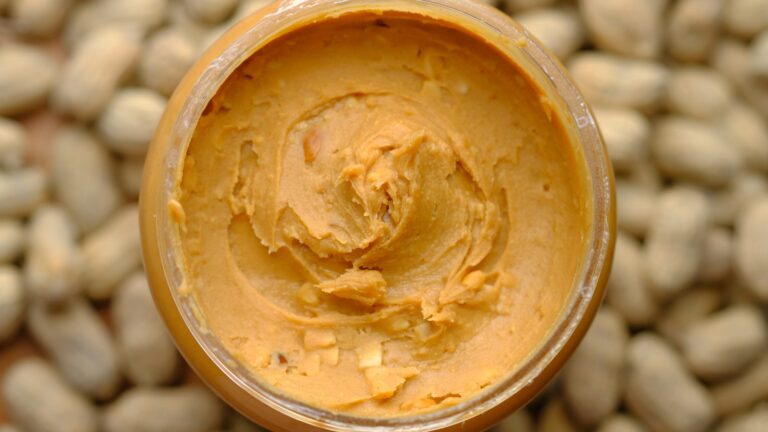
Love peanut butter Discover its surprising health and energy benefits!
Peanut butter is a popular and versatile spread loved by people all over the world. Known for its creamy or crunchy texture and rich nutty flavor, peanut butter has become a staple in kitchens everywhere. From breakfast toast to smoothies, desserts, and even savory dishes, it’s more than just a tasty treat- it’s a nutritional powerhouse packed with protein, healthy fats, fiber, vitamins, and minerals like magnesium, potassium, and vitamin E.
Whether you’re a fitness enthusiast looking for an energy-boosting snack, a busy professional needing a quick bite, or a parent searching for healthy foods for kids, peanut butter is a perfect choice. Its high protein content supports muscle growth and repair, while healthy fats contribute to heart health and overall wellness. This guide will explore everything you need to know about peanut butter, including its nutrition, health benefits, types, and ways to include it in your diet.
What is Peanut Butter?
Peanut butter is made by grinding roasted peanuts into a smooth or chunky paste. The roasting process enhances the flavor and aroma, while grinding transforms the peanuts into a spreadable, creamy texture that can also be slightly crunchy depending on the type.
There are several popular types of peanut butter:
- Creamy Peanut Butter: Smooth and easy to spread, ideal for sandwiches, baking, and smoothies.
- Chunky Peanut Butter: Contains small peanut pieces for added crunch and flavor.
- Natural Peanut Butter: Made from 100% peanuts with no added sugar or hydrogenated oils, making it a healthier choice.
- Flavored Peanut Butter: Includes variations like chocolate, honey, or cinnamon for a fun twist on the classic spread.
Nutritional Benefits of Peanut Butter
Peanut butter is rich in essential nutrients that make it an excellent addition to a healthy diet. A standard serving of peanut butter (about two tablespoons) contains:
- Protein: Supports muscle growth, repair, and overall strength.
- Healthy Fats: Most fats are unsaturated, promoting heart health and reducing bad cholesterol (LDL).
- Fiber: Aids digestion, helps maintain stable blood sugar, and keeps you full longer.
- Vitamins: Rich in Vitamin E, which acts as a powerful antioxidant supporting immunity and cell health.
- Minerals: Magnesium, potassium, and phosphorus are vital for energy production, bone health, and muscle function.
Since peanut butter is calorie-dense, moderation is important. About 1–2 tablespoons per day is sufficient to enjoy its nutritional benefits without overeating.
Health Benefits of Peanut Butter
Peanut butter is not only tasty but also offers numerous health benefits:
- Supports Heart Health: Unsaturated fats in peanut butter help improve cholesterol levels and support cardiovascular wellness.
- Aids in Weight Management: Protein and fiber promote satiety, reducing unnecessary snacking and helping maintain a healthy weight.
- Good for Diabetics: Natural peanut butter has a low glycemic index, making it suitable for maintaining stable blood sugar levels.
- Boosts Energy: Provides a steady source of energy, ideal for athletes, busy professionals, and children.
Incorporating peanut butter into a balanced diet can help improve overall health, energy levels, and well-being.
Things to Watch Out For
While peanut butter is nutritious, it’s important to make mindful choices:
- Added Ingredients: Some commercial brands contain sugar, hydrogenated oils, or excessive salt. Opt for natural or minimally processed peanut butter.
- Allergies: Peanut allergies are common and can trigger severe reactions. Those with allergies should avoid peanut butter.
- Portion Control: Stick to about 2 tablespoons per day to enjoy the benefits without overconsuming calories.
Facts About Peanut Butter
- Peanut butter is a staple in American households, with over 3 million tons consumed annually in the USA.
- Beyond sandwiches, it’s used in desserts, candies, and even savory dishes around the world.
- Originally, peanut butter was developed as a health food for elderly people and those who couldn’t chew meat.

Delicious Ways to Include Peanut Butter in Your Diet
Peanut butter’s versatility makes it easy to enjoy in many forms:
- Spread on toast, bagels, or crackers for a quick snack.
- Add to smoothies for a protein-rich boost.
- Mix into oatmeal or yogurt for breakfast.
- Use in baking cookies, brownies, or energy bars.
- Incorporate into sauces or dressings for savory dishes.
By getting creative, peanut butter can become a part of your daily meals while providing both flavor and nutrition.
Conclusion:
Peanut butter is more than just a tasty spread it is nutritious, versatile, and full of energy-boosting protein, healthy fats, vitamins, and minerals. From sandwiches and smoothies to desserts and savory dishes, it can enhance a variety of meals. Next time you grab a slice of toast or a snack, try spreading a little peanut butter it’s not just delicious, it’s a source of health and energy.
Also read: World Food Day 2025- Hand in Hand for Better Foods and a Better Future







